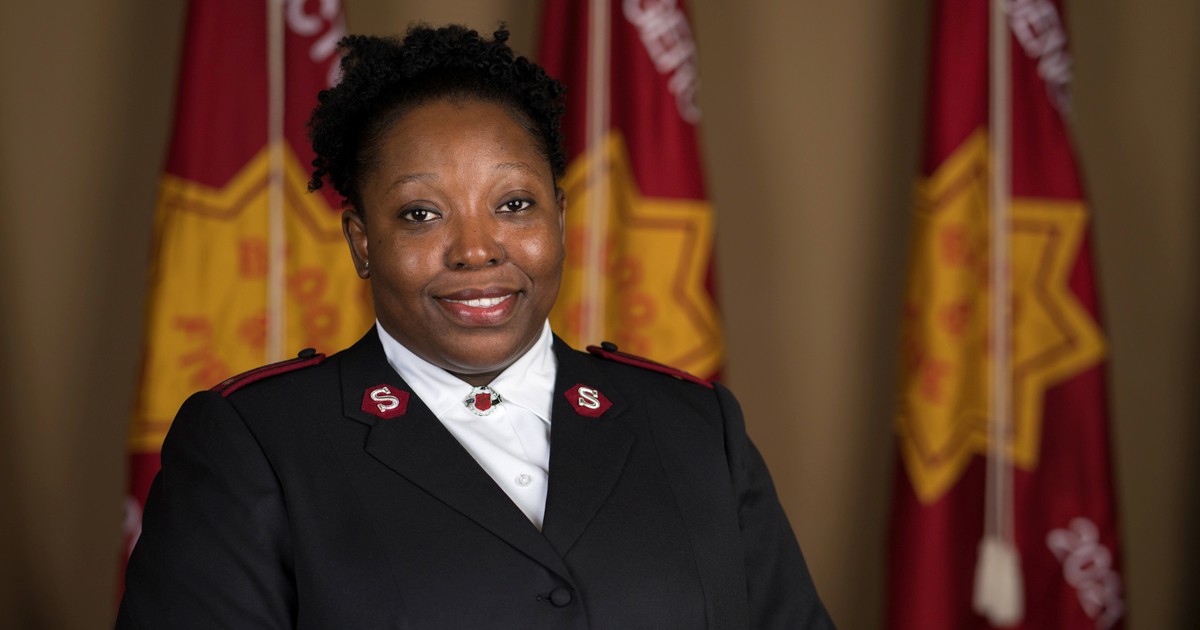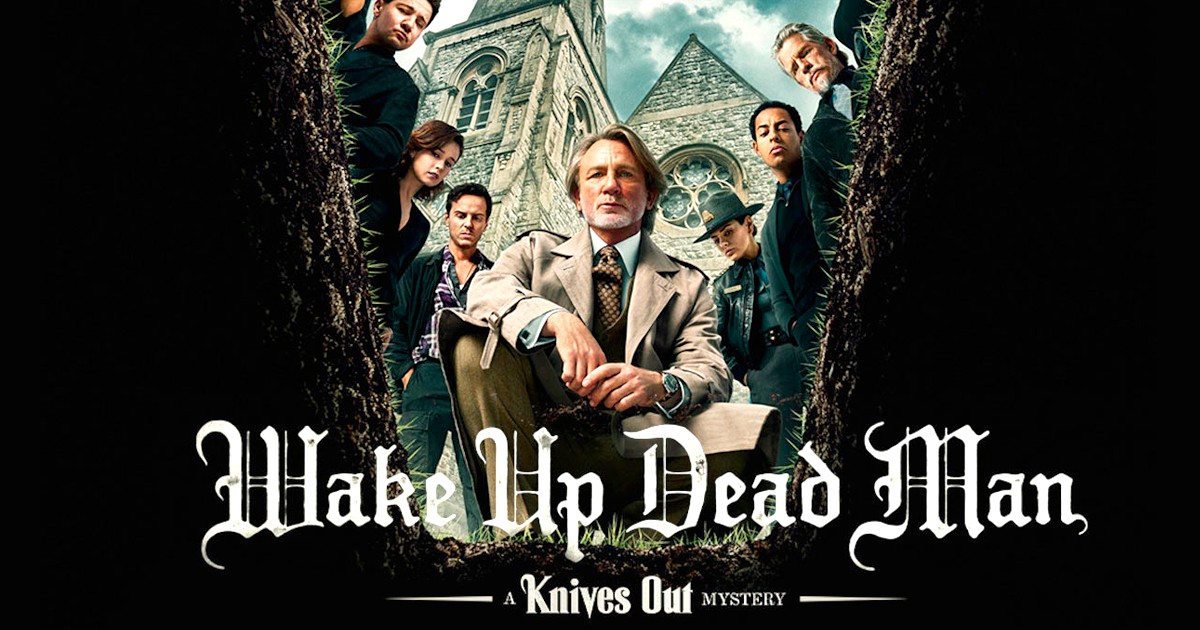Dear Amy,
Know the difference between a pessimist and an optimist? A pessimist says, “Things couldn't be worse,” and an optimist says, “Sure they could!”
Pretty good, eh?
I've been listening to a lot of pessimists and optimists since the recent market meltdown, as they're calling it, and the more I listen, the more confused I get.
There's been ample moralizing about what's happened and what to do about it now. How could the government in good conscience bail out the billionaires who got us into the mess? How could the government be so heartless as to throw millions out of work? And on it goes.
Despite the fact that most of these complaints seem sanctimonious, there are legitimate questions about the ethics of the players and of the policies being proposed. But at the moment I'm more interested in the fact that various influential people are telling us not to be despairing. Hope is what is needed, they say. Without hope people hunker down and clutch tightly to the money they have. They become hoarders rather than consumers, and without people getting out and buying stuff, a recession will become a depression.
What troubles me is that I can't see a difference here between hope and wishful thinking. If that's all hope really is, it might have some psychological benefits, but I don't see that it should count as a virtue. If hope is a virtue, surely it's got to have a more solid foundation.
I'm similarly troubled by the way in which we sometimes figure we've got to perk up people who are grieving. A friend's mom has died, and we find it tempting to say something like, “Don't be too sad. She's in a better place now. Why, I bet she's having a chat with Jesus right now, and I know she's waiting for you.” What's that about? We don't know that kind of detail about the other side of death. Besides, that's not why we say it. It seems that all we want is for our friend to feel hopeful; whether there's good reason for that hope or not is irrelevant.
That bothers me. A Christianity that boils down to the power of positive thinking angers me. I get more than angry at those “preachers” who go to the positive thinking extreme and turn God into some magical “upper.” Despair is sin, they say. If you really have faith in God, if your hope is really in Christ, you'll take the anti-depressants your doctor ordered and flush them down the toilet.
What is it the Apostle Paul said? “If only for this life we have hope in Christ, we are to be pitied more than all others” (1 Corinthians 15:19). How true.
Still, that leaves open the question of what real Christian hope is and what makes it a virtue in Christian ethics, Amy. What do you think?
Jim
Dear Jim,
I like your statement: “If hope is a virtue, surely it's got to have a more solid foundation.”
And it does! Check out this verse: “For everything that was written in the past was written to teach us, so that through the endurance taught in the Scriptures and the encouragement they provide we might have hope” (Romans 15:4).
The purpose of Scripture itself is for humanity to have hope! The foundation of hope is the very Word of God. You can't get more solid than that.
As I understand Scripture, it offers one grand hope for all of humanity. Since the fall of humanity, that hope has been the same. It is the hope of unbroken, perfect fellowship with our Creator. And that hope must rest on a Messiah, since it is not something we can bring about ourselves.
So, in the Old Testament, they awaited the arrival of the Messiah. Most Jews, of course, did not recognize him once he came. But he came, and he provided means of restoration to God through his death and Resurrection. But that restoration won't be complete until the second coming of the Messiah, when humanity and Deity will dwell together in the new Zion. What a day that will be!
I think our understanding of and experience with hope needs to be deeper. Sure, we all hope for economic prosperity, we hope our kids make good choices, and so on. But the hope that lies at the foundation of our lives is the hope that already has a guaranteed outcome. We will live forever in fellowship with God. So, I guess real hope isn't wishing, Jim. Hope is knowing.
 Arthur McGill wrote, “The Christian can know joy in connection with sorrow, but only because he knows the power of God is overcoming the power of evil.” Our deeper hope in the final outcome of things can affect our daily living. We all have times of great sorrow. But a Christian can survive financial troubles, divorce, heartache, illness, loss of a loved one, because the big picture is so secure. As the old spiritual said, “This world is not my home, I'm just a-passin' through.”
Arthur McGill wrote, “The Christian can know joy in connection with sorrow, but only because he knows the power of God is overcoming the power of evil.” Our deeper hope in the final outcome of things can affect our daily living. We all have times of great sorrow. But a Christian can survive financial troubles, divorce, heartache, illness, loss of a loved one, because the big picture is so secure. As the old spiritual said, “This world is not my home, I'm just a-passin' through.”
Amy
Dear Amy,
Funny how things happen. I had no sooner got my first letter to you finished when I received a note from a friend that included a poem written by Commissioner Harry Read shortly after the death of his wife. It seems uncannily (some might say, providentially) à propos.
Here's the first part of the poem:
I must not drift on turgid tides of sadness,
My sullen sails, bedraggled by despair.
No! I must ride the waves with hope and gladness
My swollen sails charged with celestial air.
Now, a couple of things pertaining to Christian hope stand out for me. The first is that Commissioner Read titles his poem Realism. It's a great title that affirms what you were saying, that is, Christian hope is founded and grounded in the reality of God, who undergirds all that is real. For a Christian to hope that the death of his wife is not the end of her or the end of their relationship is not wishful thinking, but a way of showing that he knows a reality that is deeper than appearances.
For me, it's also a great title because it implies that when the commissioner wrote the poem he wasn't feeling all that happy. It's an honest poem because it admits the reality that Christians, even very mature Christians, are sometimes beset by feelings of sadness and despair.
Hope has an objective side, which you've emphasized, and it has a subjective side. They don't always line up. I admire those who aren't scared off by the disconnect.
Let me pass this back to you with the suggestion that emotions and ideas aren't the whole of hope. There's an action element, too. I think your new president, Barack Obama, got this right when he called his book The Audacity of Hope (a title he got from a sermon, incidentally). When 1 Peter 3:15 says to give a reason for the hope you have in you, the context is of Christians suffering injustice. What surprised people is not that first-century Christians felt emotionally upbeat about being abused, but that they took the risk of still doing good to their neighbours, even the neighbours who hated them. Such actions are either crazy or they show an audacious hope in a good God who controls the future.
I hope you'll let me know what you think.
Jim
Dear Jim,
If we're going to describe hope as action, I would have to say that hope is an act of defiance. I think that goes along with the idea of audacity. It isn't defiant against God, of course. It is defiant against the adverse circumstances that attempt to steal a Christian's joy. Perhaps sometimes it is defiant against the Enemy himself.
That's what I love about the poem you shared with me. There is a stubborn refusal to be crushed. He simply will not have it. He even has an action plan, as seen in the last stanza of the poem:
What then of me? Do I my faith surrender?
Become a captive bound by memory's chains?
Can I not live enriched by memory's splendour
And prove in life and death that Jesus reigns?
He has determined that his life will be fuller because of the memory of his beloved wife, and that he will testify—presumably both to himself and the world—that God is in control whether we live or die.
What strength of character the commissioner demonstrated in his poem! Indeed, hope is not for the weak. Hope takes courage. Hope requires bravery. Hope says, “No matter what you throw at me, I will love, I will look up, I will have joy.”
Many Christians have stories to tell of an unsaved person saying to them, “I want whatever it is that you've got.” Maybe what they see is hope. They don't see perfect lives, where everything goes according to plan. They see us as being able to negotiate the curves and twists of life. They see us riding life's rollercoaster without getting sick. Hope in God's ultimate plan, knowledge of the fact that Jesus reigns in life, death and everything in between, is our great advantage.
May our lives be testimonies of hope. May we thereby draw people to the One in whom we hope.
Amy

 In this Talking It Over series, Dr. James Read, Executive Director of The Salvation Army Ethics Centre in Winnipeg, and Captain Amy Reardon, Editor of Young Salvationist, U.S.A. National Headquarters, dialogue about moral and ethical issues. Click here to read more debates in the Talking It Over series.
In this Talking It Over series, Dr. James Read, Executive Director of The Salvation Army Ethics Centre in Winnipeg, and Captain Amy Reardon, Editor of Young Salvationist, U.S.A. National Headquarters, dialogue about moral and ethical issues. Click here to read more debates in the Talking It Over series.
Know the difference between a pessimist and an optimist? A pessimist says, “Things couldn't be worse,” and an optimist says, “Sure they could!”
Pretty good, eh?
I've been listening to a lot of pessimists and optimists since the recent market meltdown, as they're calling it, and the more I listen, the more confused I get.
There's been ample moralizing about what's happened and what to do about it now. How could the government in good conscience bail out the billionaires who got us into the mess? How could the government be so heartless as to throw millions out of work? And on it goes.
Despite the fact that most of these complaints seem sanctimonious, there are legitimate questions about the ethics of the players and of the policies being proposed. But at the moment I'm more interested in the fact that various influential people are telling us not to be despairing. Hope is what is needed, they say. Without hope people hunker down and clutch tightly to the money they have. They become hoarders rather than consumers, and without people getting out and buying stuff, a recession will become a depression.
What troubles me is that I can't see a difference here between hope and wishful thinking. If that's all hope really is, it might have some psychological benefits, but I don't see that it should count as a virtue. If hope is a virtue, surely it's got to have a more solid foundation.
The hope that lies at the foundation of our lives already has a guaranteed outcome
I'm similarly troubled by the way in which we sometimes figure we've got to perk up people who are grieving. A friend's mom has died, and we find it tempting to say something like, “Don't be too sad. She's in a better place now. Why, I bet she's having a chat with Jesus right now, and I know she's waiting for you.” What's that about? We don't know that kind of detail about the other side of death. Besides, that's not why we say it. It seems that all we want is for our friend to feel hopeful; whether there's good reason for that hope or not is irrelevant.
That bothers me. A Christianity that boils down to the power of positive thinking angers me. I get more than angry at those “preachers” who go to the positive thinking extreme and turn God into some magical “upper.” Despair is sin, they say. If you really have faith in God, if your hope is really in Christ, you'll take the anti-depressants your doctor ordered and flush them down the toilet.
What is it the Apostle Paul said? “If only for this life we have hope in Christ, we are to be pitied more than all others” (1 Corinthians 15:19). How true.
Still, that leaves open the question of what real Christian hope is and what makes it a virtue in Christian ethics, Amy. What do you think?
Jim
Dear Jim,
I like your statement: “If hope is a virtue, surely it's got to have a more solid foundation.”
And it does! Check out this verse: “For everything that was written in the past was written to teach us, so that through the endurance taught in the Scriptures and the encouragement they provide we might have hope” (Romans 15:4).
The purpose of Scripture itself is for humanity to have hope! The foundation of hope is the very Word of God. You can't get more solid than that.
As I understand Scripture, it offers one grand hope for all of humanity. Since the fall of humanity, that hope has been the same. It is the hope of unbroken, perfect fellowship with our Creator. And that hope must rest on a Messiah, since it is not something we can bring about ourselves.
So, in the Old Testament, they awaited the arrival of the Messiah. Most Jews, of course, did not recognize him once he came. But he came, and he provided means of restoration to God through his death and Resurrection. But that restoration won't be complete until the second coming of the Messiah, when humanity and Deity will dwell together in the new Zion. What a day that will be!
I think our understanding of and experience with hope needs to be deeper. Sure, we all hope for economic prosperity, we hope our kids make good choices, and so on. But the hope that lies at the foundation of our lives is the hope that already has a guaranteed outcome. We will live forever in fellowship with God. So, I guess real hope isn't wishing, Jim. Hope is knowing.
 Arthur McGill wrote, “The Christian can know joy in connection with sorrow, but only because he knows the power of God is overcoming the power of evil.” Our deeper hope in the final outcome of things can affect our daily living. We all have times of great sorrow. But a Christian can survive financial troubles, divorce, heartache, illness, loss of a loved one, because the big picture is so secure. As the old spiritual said, “This world is not my home, I'm just a-passin' through.”
Arthur McGill wrote, “The Christian can know joy in connection with sorrow, but only because he knows the power of God is overcoming the power of evil.” Our deeper hope in the final outcome of things can affect our daily living. We all have times of great sorrow. But a Christian can survive financial troubles, divorce, heartache, illness, loss of a loved one, because the big picture is so secure. As the old spiritual said, “This world is not my home, I'm just a-passin' through.”
Amy
Dear Amy,
Funny how things happen. I had no sooner got my first letter to you finished when I received a note from a friend that included a poem written by Commissioner Harry Read shortly after the death of his wife. It seems uncannily (some might say, providentially) à propos.
Here's the first part of the poem:
I must not drift on turgid tides of sadness,
My sullen sails, bedraggled by despair.
No! I must ride the waves with hope and gladness
My swollen sails charged with celestial air.
Now, a couple of things pertaining to Christian hope stand out for me. The first is that Commissioner Read titles his poem Realism. It's a great title that affirms what you were saying, that is, Christian hope is founded and grounded in the reality of God, who undergirds all that is real. For a Christian to hope that the death of his wife is not the end of her or the end of their relationship is not wishful thinking, but a way of showing that he knows a reality that is deeper than appearances.
For me, it's also a great title because it implies that when the commissioner wrote the poem he wasn't feeling all that happy. It's an honest poem because it admits the reality that Christians, even very mature Christians, are sometimes beset by feelings of sadness and despair.
Hope has an objective side, which you've emphasized, and it has a subjective side. They don't always line up. I admire those who aren't scared off by the disconnect.
Let me pass this back to you with the suggestion that emotions and ideas aren't the whole of hope. There's an action element, too. I think your new president, Barack Obama, got this right when he called his book The Audacity of Hope (a title he got from a sermon, incidentally). When 1 Peter 3:15 says to give a reason for the hope you have in you, the context is of Christians suffering injustice. What surprised people is not that first-century Christians felt emotionally upbeat about being abused, but that they took the risk of still doing good to their neighbours, even the neighbours who hated them. Such actions are either crazy or they show an audacious hope in a good God who controls the future.
I hope you'll let me know what you think.
Jim
Dear Jim,
If we're going to describe hope as action, I would have to say that hope is an act of defiance. I think that goes along with the idea of audacity. It isn't defiant against God, of course. It is defiant against the adverse circumstances that attempt to steal a Christian's joy. Perhaps sometimes it is defiant against the Enemy himself.
That's what I love about the poem you shared with me. There is a stubborn refusal to be crushed. He simply will not have it. He even has an action plan, as seen in the last stanza of the poem:
What then of me? Do I my faith surrender?
Become a captive bound by memory's chains?
Can I not live enriched by memory's splendour
And prove in life and death that Jesus reigns?
He has determined that his life will be fuller because of the memory of his beloved wife, and that he will testify—presumably both to himself and the world—that God is in control whether we live or die.
What strength of character the commissioner demonstrated in his poem! Indeed, hope is not for the weak. Hope takes courage. Hope requires bravery. Hope says, “No matter what you throw at me, I will love, I will look up, I will have joy.”
Many Christians have stories to tell of an unsaved person saying to them, “I want whatever it is that you've got.” Maybe what they see is hope. They don't see perfect lives, where everything goes according to plan. They see us as being able to negotiate the curves and twists of life. They see us riding life's rollercoaster without getting sick. Hope in God's ultimate plan, knowledge of the fact that Jesus reigns in life, death and everything in between, is our great advantage.
May our lives be testimonies of hope. May we thereby draw people to the One in whom we hope.
Amy

 In this Talking It Over series, Dr. James Read, Executive Director of The Salvation Army Ethics Centre in Winnipeg, and Captain Amy Reardon, Editor of Young Salvationist, U.S.A. National Headquarters, dialogue about moral and ethical issues. Click here to read more debates in the Talking It Over series.
In this Talking It Over series, Dr. James Read, Executive Director of The Salvation Army Ethics Centre in Winnipeg, and Captain Amy Reardon, Editor of Young Salvationist, U.S.A. National Headquarters, dialogue about moral and ethical issues. Click here to read more debates in the Talking It Over series.









Leave a Comment